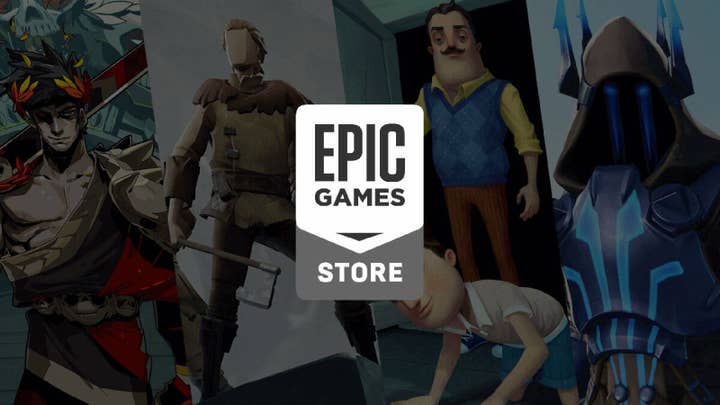Epic expects Epic Games Store to be profitable by 2024
Court documents also reveal details of $146 million Borderlands exclusivity deal and $11.7 million spent on free games
The profitability of Epic Games Store has once again been brought into question as the antitrust trial between Epic and Apple kicks off.
Following the companies' opening statements, the proceedings primarily concentrated on examining Epic Games, its arguments and its own business models -- including the Epic Games Store.
CEO Tim Sweeney gave testimony yesterday and confirmed that the store is "hundreds of millions of dollars short of being profitable," The Washington Post reports.
He attributed this to upfront costs and expects the store will turn a profit "within three or four years."
Further insight into these expectations can be gleaned by court documents spotted by PC Gamer, including an October 2019 performance and strategy review that features a five-year forecast for profit and loss.
The document models the future revenues for the Epic Games Store based on two scenarios: an 'aggressive pursuit' model, in which Epic continues to invest heavily in exclusive titles to attract new users and gain market share, and the 'winding down' model, in which the company focuses only on meeting the minimum guarantees promised to exclusive titles up to 2021.
According to the forecasts, the more aggressive model would see the Epic Games Store turning a gross loss of $181 million in 2019, rising to $273 million in 2020 but then reducing each year until turning a $45 million profit in 2024.
Under the 'winding down' model, Epic expected that same $273 million loss in 2020, but then more dramatic improvements, to the point where the store would see $18 million in profit in 2023, followed by $65 million the following year.
It's worth reiterating that this report is from October 2019, but Sweeney's comments at the trial yesterday suggest the store is still on track with these or similar plans.
The report also gives more insight into the finances around both exclusivity deals and free game offerings for the Epic Games Store.
One page revealed Epic paid $146 million for six months' exclusivity for the PC version of Borderlands 3.
This included an $80 million minimum guarantee, $15 million marketing commitment and $20 million non-recoupable fees, amounting to $115 million for just the game itself.
However, the deal also included the addition of the Borderlands Handsome Collection, for which Epic paid $11 million, and Civilization 6 for $20 million, bringing the deal to the grand total.
Borderlands 3 launched on September 13, 2019, with the report showing that in less than two months it had recouped that $80 million and brought in 1.56 million users to Epic Games Store -- 53% of which were new to the platform.
Epic itself earned $9.2 million from the game's sales thanks to the 12% cut it takes, as opposed to the 30% enforced by other stores -- an argument at the heart of the antitrust trial.
Elsewhere in the report, it shows Borderlands 3 delivered the biggest spike in daily revenue following the store's launch in December 2018. Revenues rose to around $14 million on Borderlands' release date -- prior to that the biggest spike has been the start of the Mega Sale in May, pushing daily revenues up to around $3 million.
Finally, the report gave more insight into the impact -- and expense -- of Epic Games Store's weekly free titles.
A table showed how much Epic had paid the developers for each giveaway, starting with the $1.4 million spent on Unknown Worlds' survival adventure Subnautica. This was only topped by the $1.8 million spent on Warner Bros' Batman games: $1.5 million for the Batman: Arkham trilogy by Rocksteady and a further $300,000 for the Lego Batman trilogy.
In total, $11.7 million had been spent on securing free games by October 2019, less than a year after the store launched.
But these giveaways appear to have had the desired effect of attracting new users to the Epic Games Store. Subnautica drove the most notable uplift, with over 1.5 million signing up in December 2018, while the six-game Batman giveaway in September 2019 was the second biggest boost at around 800,000.
The Batman promotion also led to a new peak in daily active users at over five million.
Apple recently pointed to Epic Games Store's unprofitability in its own projections released ahead of the court case. The iPhone maker claimed the store would not be profitable until 2027 if it continues to operate under its current strategy.
Tim Sweeney confirmed via Twitter the store was making a loss but deemed it a "fantastic investment into growing the business."
Our contributing editor Rob Fahey agreed such a loss, and the use of exclusivity and giveaways, was necessary for a new platform attempting to compete with Steam.
You can follow our complete Epic vs Apple coverage here

